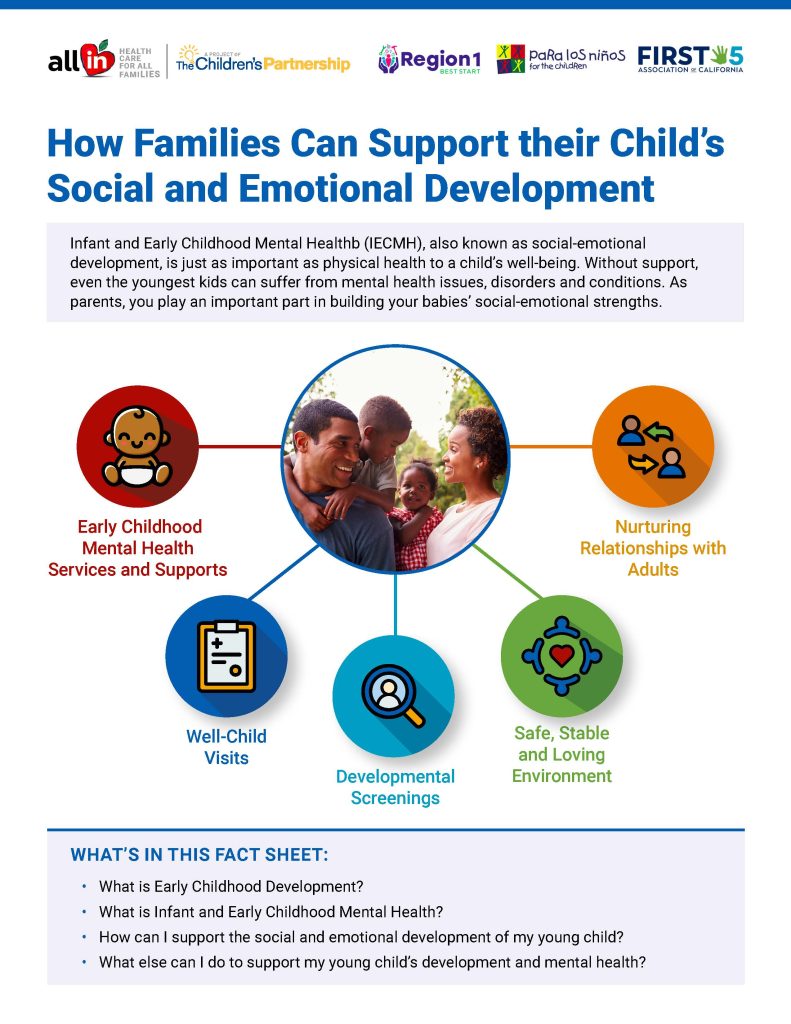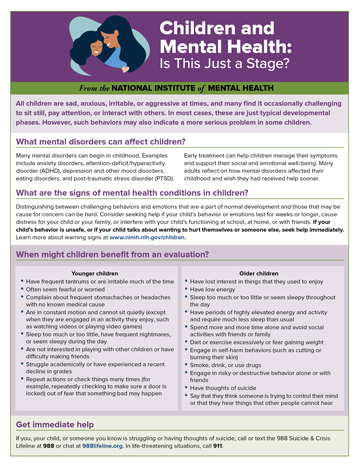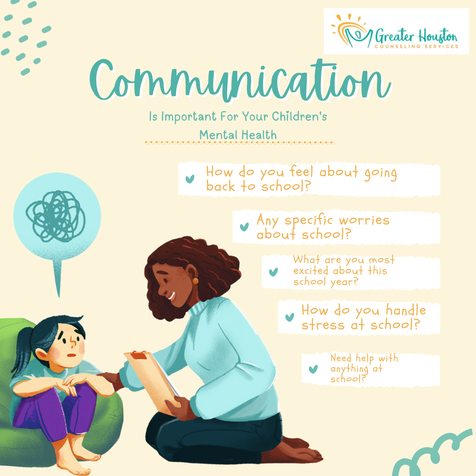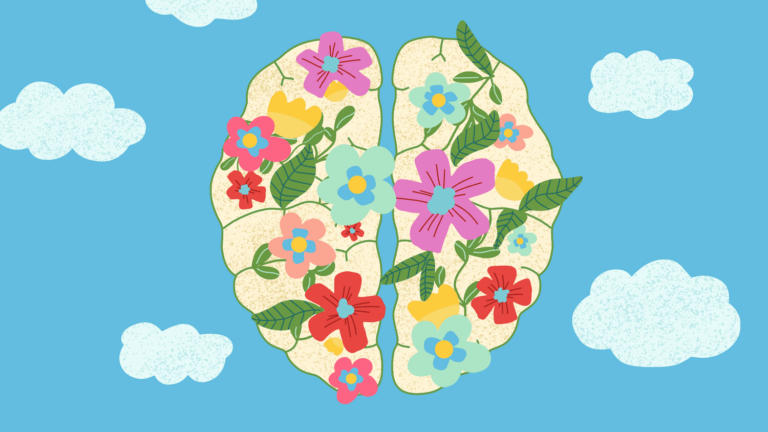The Importance of Emotional Well-Being in Children
Emotional well-being in children is crucial for their overall development and future success. It impacts their learning, behavior, and relationships.
Children’s emotional well-being forms the foundation for healthy development. Positive emotional health helps children manage stress, build resilience, and develop a positive self-image. It influences their ability to form meaningful relationships, both with peers and adults. Emotional well-being impacts academic performance, as emotionally healthy children tend to be more engaged and motivated in school.
Parents, educators, and caregivers play a vital role in fostering emotional health by providing a supportive and nurturing environment. Encouraging open communication, empathy, and emotional expression can significantly contribute to a child’s emotional well-being. Prioritizing this aspect of development ensures children grow into well-rounded, emotionally intelligent adults.

Credit: www.childrenspartnership.org
The Foundation Of Emotional Well-being
Emotional well-being in children is vital. It helps them grow happy and healthy. A strong foundation in emotional health supports them through life’s challenges. Let’s explore how early development and parental influence play key roles.
Early Development
Early development shapes a child’s future. During the first years, children learn to understand and manage emotions. They need love and security to build trust. This trust helps them feel safe and valued.
Playing and interacting are crucial. These activities teach social skills and empathy. Positive experiences in early years lay the groundwork for a healthy emotional life.
| Activity | Benefit |
|---|---|
| Reading together | Builds language and emotional skills |
| Playing games | Teaches cooperation and empathy |
| Singing songs | Enhances mood and bonding |
Parental Influence
Parents play a big role in emotional well-being. They are the first teachers. Their actions and words impact a child’s feelings. Positive parenting helps children feel loved and secure.
Setting routines gives children stability. They know what to expect and feel safe. Listening and talking are also key. When parents listen, children feel heard and understood. This builds their self-esteem.
- Show affection daily
- Encourage open communication
- Set clear and consistent rules
Signs Of Healthy Emotional Development
Understanding the signs of healthy emotional development in children is crucial. These signs help parents and educators nurture a child’s growth. Healthy emotional development fosters confidence, empathy, and resilience.
Positive Interactions
Children displaying healthy emotional development often engage in positive interactions. They play well with peers, share toys, and take turns. They also show kindness and empathy. Positive interactions are essential for building strong social skills.
Here are some signs of positive interactions:
- Smiling and laughing during playtime
- Comforting friends who are sad
- Initiating conversations and games
- Listening and responding to others
Emotional Expression
Another key sign is the ability to express emotions appropriately. Children should be able to identify and talk about their feelings. They should also manage their emotions in a healthy way.
Signs of healthy emotional expression include:
- Talking about what makes them happy or sad
- Using words to express anger instead of hitting
- Seeking help when feeling overwhelmed
- Showing empathy towards others’ feelings
| Behavior | Healthy Sign |
|---|---|
| Playing with others | Sharing and taking turns |
| Feeling upset | Talking about feelings |
| Seeing a friend cry | Offering comfort |
| Being angry | Using words to express |
Recognizing these signs helps in supporting a child’s emotional well-being. It creates a foundation for lifelong mental health and strong relationships.
The Role Of Education
Education plays a crucial role in shaping a child’s emotional well-being. Schools are not just for academic learning. They also help children develop emotionally. This process starts with creating a supportive environment. Schools also implement emotional learning programs. These two aspects are key to fostering emotional well-being in children.
Supportive Environment
A supportive environment is essential for emotional development. Teachers and staff should create a safe and welcoming space. Children need to feel valued and understood. Classrooms should encourage open communication. This helps children express their feelings and thoughts.
Here are some ways to create a supportive environment:
- Encourage kindness and empathy among students.
- Provide opportunities for group activities.
- Offer counseling services for those in need.
- Celebrate each child’s unique strengths and talents.
Emotional Learning Programs
Emotional learning programs are vital in schools. These programs teach children to manage their emotions. They also help children build strong relationships. Here are some key elements of effective programs:
| Element | Description |
|---|---|
| Self-Awareness | Helps children understand their own emotions. |
| Self-Management | Teaches children to control their emotions and actions. |
| Social Awareness | Encourages empathy and understanding of others. |
| Relationship Skills | Helps children build and maintain healthy relationships. |
| Responsible Decision-Making | Teaches children to make thoughtful choices. |
These programs often include activities like role-playing and group discussions. This helps children practice what they learn in a safe environment.

Credit: www.psychologicalhealthcare.com.au
Impact On Academic Performance
Emotional well-being in children significantly influences their academic performance. A child’s mental state can shape their ability to learn and succeed.
Concentration And Focus
Emotional well-being directly affects a child’s concentration and focus. Kids who feel happy and secure can better concentrate on their studies. Emotional distress, like anxiety or sadness, can distract children. They may struggle to pay attention in class or during homework. Positive emotions help kids stay engaged with their schoolwork. They are also more likely to participate in classroom activities.
Social Skills
Children with good emotional health develop strong social skills. These skills are essential for teamwork and group projects. Kids who can manage their emotions interact better with peers and teachers. They can resolve conflicts and build healthy relationships. Good social skills also boost self-esteem, which impacts learning. Children with high self-esteem are more likely to ask for help and take on challenges.
| Factors | Impact on Academic Performance |
|---|---|
| Concentration and Focus | Improved engagement and participation in class |
| Social Skills | Better teamwork and conflict resolution |
Challenges In Emotional Development
Children face numerous challenges in their emotional development. These challenges can impact their well-being and growth. Understanding these obstacles helps in supporting children effectively.
Bullying And Peer Pressure
Bullying is a significant issue that children often encounter. It can damage their self-esteem and emotional health. Bullying can happen in schools, parks, or even online. Children may feel scared, sad, or alone.
Peer pressure is another challenge. Kids might feel forced to act against their values. They may do things to fit in or be liked by others. This pressure can lead to stress and anxiety.
Parents and teachers need to recognize these issues. Providing a supportive environment is crucial. Encourage kids to talk about their feelings. They should know it’s okay to be themselves.
Family Issues
Family problems can also affect a child’s emotional development. Issues like divorce or financial struggles create stress. Children might feel confused or insecure during these times.
Sometimes, parents argue or have disagreements. Kids might think it’s their fault. This can lead to feelings of guilt or sadness.
Open communication within the family is essential. Children should feel safe to express their feelings. Activities like family dinners or game nights can strengthen bonds.
| Challenges | Impact |
|---|---|
| Bullying | Lower self-esteem, sadness, fear |
| Peer Pressure | Stress, anxiety, loss of individuality |
| Family Issues | Confusion, insecurity, guilt |
Addressing these challenges is vital for a child’s emotional well-being. By understanding and supporting them, we can help children grow into healthy adults.
Strategies For Parents
Fostering emotional well-being in children is essential for their overall development. Parents play a crucial role in this process. Implementing effective strategies can make a significant difference. Here are two key strategies for parents to promote emotional well-being in children.
Active Listening
Active listening involves giving children your full attention. Show them that their feelings and thoughts matter. Use eye contact and nodding to show you are engaged. Here are some steps to practice active listening:
- Maintain eye contact: This shows that you are focused on them.
- Use encouraging words: Phrases like “I understand” or “That sounds tough” help.
- Ask open-ended questions: Questions like “How did that make you feel?” encourage expression.
- Summarize their words: Repeat what they said to show understanding.
Children feel valued when parents listen actively. This builds trust and emotional security.
Consistent Routines
Consistent routines provide a sense of stability and security. Children thrive on predictability. Here is how to establish consistent routines:
| Routine | Benefits |
|---|---|
| Bedtime Schedule | Promotes better sleep and overall health. |
| Meal Times | Encourages healthy eating habits. |
| Homework Time | Improves focus and academic performance. |
Consistent routines help children understand what to expect. This reduces anxiety and promotes a calm environment.
Integrating these strategies can greatly enhance a child’s emotional well-being. Remember, small consistent efforts make a big impact.
Community And Social Support
Emotional well-being in children is crucial for their growth. Community and social support play a vital role in this. These supports help children feel safe and valued. They also teach kids to build strong relationships.
After-school Programs
After-school programs offer children a safe place to learn and play. These programs can include sports, arts, and homework help. Kids make friends and learn new skills. They also stay out of trouble and have fun.
Here are some benefits of after-school programs:
- Improved academic performance
- Better social skills
- Increased physical activity
- Positive adult role models
Counseling Services
Counseling services help children deal with their emotions. Professional counselors listen and offer advice. They teach kids how to handle stress and anxiety. Counseling can happen at school or in the community.
The benefits of counseling services include:
- Better emotional regulation
- Improved self-esteem
- Healthy coping mechanisms
- Support during tough times

Credit: www.nimh.nih.gov
Long-term Benefits
Emotional well-being in children provides numerous long-term benefits. These benefits extend far into adulthood. Children who develop emotional skills early tend to lead happier lives. They are better equipped to handle life’s challenges and build meaningful connections.
Resilience Building
Resilience is the ability to bounce back from difficulties. Children with strong emotional well-being develop this skill naturally. They learn to manage stress and adapt to changes. This makes them more capable in facing future adversities.
Key factors that contribute to resilience:
- Self-awareness
- Self-regulation
- Social skills
These factors help children maintain a positive outlook. They are less likely to suffer from anxiety or depression. Resilient children grow into resilient adults. They can handle workplace stress and personal setbacks more effectively.
Healthy Relationships
Children with good emotional health form better relationships. They understand and express their feelings clearly. They also recognize and respect others’ emotions.
Healthy relationships are built on strong emotional skills:
- Effective communication
- Empathy
- Conflict resolution
These skills foster trust and mutual respect. Children learn to work well in teams. They are better friends, partners, and colleagues in the future.
| Skill | Long-Term Benefit |
|---|---|
| Self-awareness | Better stress management |
| Empathy | Stronger relationships |
| Conflict resolution | Improved teamwork |
Focusing on emotional well-being today ensures a brighter future. Children grow into balanced, successful adults.
Conclusion
Nurturing emotional well-being in children is essential for their growth and happiness. It builds resilience and self-esteem. Parents and educators must prioritize emotional health. Simple daily practices can make a significant difference. Investing in children’s emotional well-being today ensures a healthier, happier future for them.
Let’s create a supportive environment for all kids.







